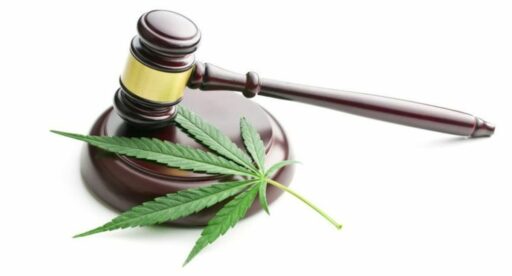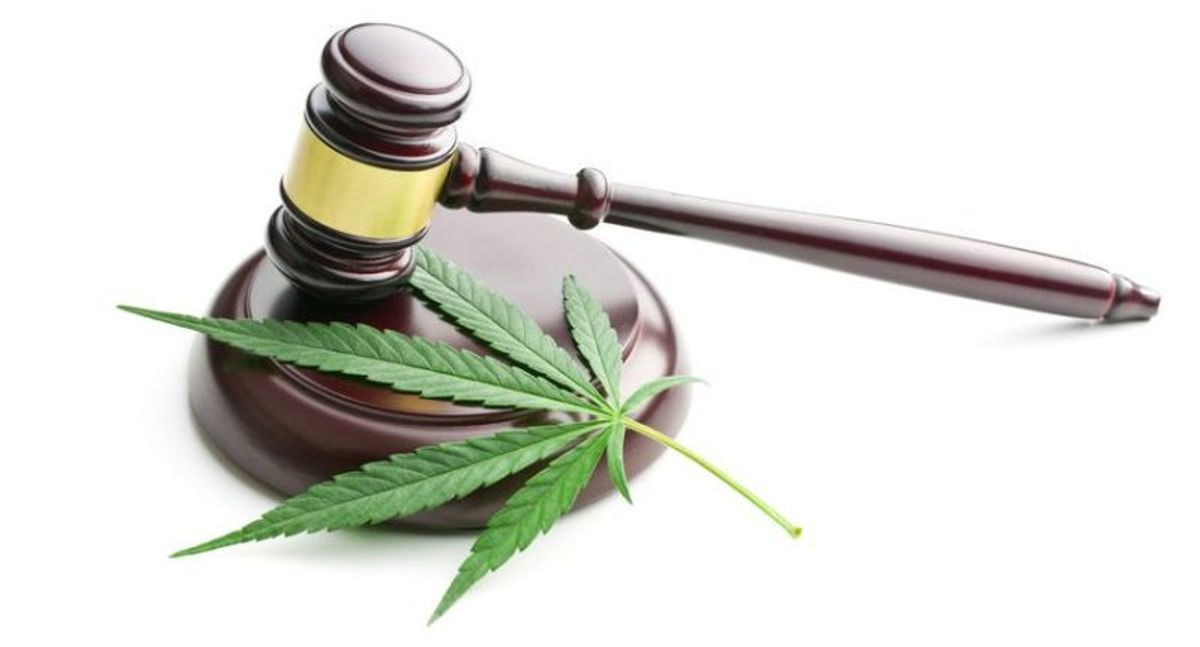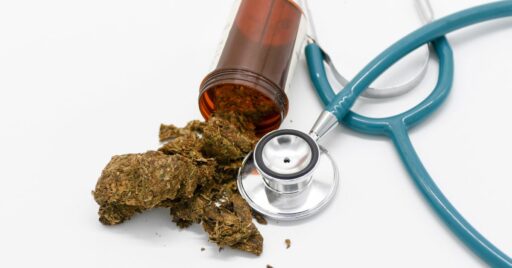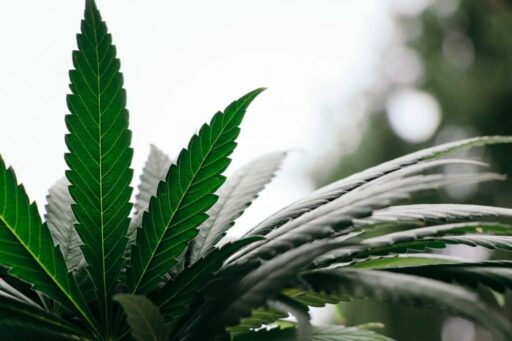As Texas grapples with the complexities of marijuana legislation, it’s important to understand the current legal status of cannabis in the state. This article provides a comprehensive overview of the legal landscape, medical marijuana regulations, the status of hemp and CBD, enforcement practices, and a comparative analysis with neighboring states. It’s essential to recognize that marijuana laws are subject to rapid changes and the information presented here reflects the state of affairs as of April 2024.
Key Takeaways
- Marijuana remains illegal for recreational use in Texas, classified as a controlled substance under both state and federal law.
- Texas has a Compassionate Use Program that allows for limited medical marijuana use for qualifying conditions, with potential for future expansion.
- Industrial hemp and CBD are legal in Texas, but controversies exist over substances like Delta-8 THC and the clarity of their legal status.
- Enforcement of marijuana laws in Texas includes penalties for possession and distribution, with ongoing discussion about changes to enforcement practices.
- Texas marijuana laws differ from those in neighboring states, which can impact interstate legal issues and influence future Texas legislation.
The Current Legal Landscape of Marijuana in Texas

State Classification and Criminal Offenses
In Texas, marijuana is classified under the Texas Controlled Substances Act as a substance in penalty group 2, which dictates the criminal penalties for possession and delivery. Specifically, Sections 481.120 and 481.121 of the Texas Health and Safety Code outline the offenses and their severity, which vary based on the amount of marijuana involved.
The legal framework in Texas takes a stringent stance on marijuana, with clear statutory definitions and penalties for various marijuana-related offenses.
The following table summarizes the offenses and corresponding penalties based on the amount of marijuana:
| Amount | Possession Offense | Delivery Offense |
|---|---|---|
| Under 2 oz | Class B misdemeanor | State jail felony |
| 2 – 4 oz | Class A misdemeanor | 2nd degree felony |
| 4 oz – 5 lbs | State jail felony | 1st degree felony |
| Over 5 lbs | 3rd degree felony | Enhanced 1st degree felony |
It is important to note that these classifications and penalties are distinct from federal law, which categorizes marijuana as a Schedule I controlled substance, indicating a high potential for abuse and no accepted medical use.
Federal vs. State Jurisdiction
The interplay between federal and state jurisdiction over marijuana laws creates a complex legal environment. Federal law classifies marijuana as a Schedule I controlled substance, indicating a high potential for abuse and no accepted medical use. Despite this, several states, including Texas, have enacted laws that conflict with federal regulations.
- Federal law under the Controlled Substances Act prohibits marijuana use and possession.
- Texas law has its own set of regulations, including the Compassionate Use Program for medical marijuana.
- Discrepancies between state and federal law lead to legal uncertainties for residents and businesses.
The tension between state sovereignty and federal oversight continues to challenge the legal status of marijuana in Texas. Without a unified approach, individuals and entities must navigate a patchwork of laws that can vary significantly from one jurisdiction to another.
Impact of Rescheduling on State Reform
The debate on the rescheduling of marijuana is a pivotal point for Texas, where the legal status of cannabis remains stringent. Rescheduling could potentially open doors for broader reform, influencing everything from criminal charges to medical research.
- Rescheduling may reduce the severity of criminal offenses associated with marijuana.
- It could also expand the scope of permissible medical research and access to cannabis for therapeutic purposes.
- The economic impact of rescheduling might lead to a new revenue stream for the state through taxation and regulation.
The implications of rescheduling are far-reaching, potentially altering the legal and social landscape of marijuana in Texas. While the exact outcomes are uncertain, the anticipation of change is palpable among advocates and policymakers alike.
The process of rescheduling is complex, involving both state and federal considerations. Texas law mandates a periodic review of rules, which could be a critical juncture for adopting amendments in response to federal rescheduling. Meanwhile, local efforts to decriminalize possession indicate a shifting attitude towards cannabis, despite legal challenges from the state.
Medical Marijuana and Compassionate Use in Texas

Overview of the Compassionate Use Program
The Compassionate Use Program in Texas represents a significant, albeit limited, shift in the state’s approach to marijuana, particularly for medical purposes. The program allows for the legal prescription of low-THC cannabis to patients with certain medical conditions. It is a tightly regulated initiative, with strict eligibility criteria and a limited number of dispensaries authorized to produce and distribute the medication.
- Eligibility Criteria: Patients must be diagnosed with an approved condition by a registered physician.
- Dispensaries: A small number of licensed organizations can cultivate, process, and dispense low-THC cannabis.
- Products: Only low-THC cannabis is permitted, with a cap on the percentage of THC content.
While the program marks progress for patients in need, it is often criticized for its restrictive nature. Advocates argue that the list of qualifying conditions is too narrow and the access to dispensaries too limited, hindering the potential benefits of medical cannabis.
The future of the Compassionate Use Program hinges on legislative changes that could expand its scope and accessibility. As it stands, the program serves as a cautious step towards acknowledging the therapeutic potential of cannabis within the confines of Texas law.
Qualifying Conditions and Access
Under the Texas Compassionate-Use Act, the state has delineated specific conditions that qualify patients for access to low-THC cannabis. These conditions include intractable epilepsy, multiple sclerosis, spasticity, autism, and terminal cancer, among others. Access to medical marijuana under this program is tightly regulated, requiring a prescription from a state-registered physician.
To ensure proper management and oversight, the Act established requirements for the licensing and registration of dispensaries. These dispensaries are the only legal avenue through which patients can obtain low-THC cannabis. The process for patients includes obtaining a diagnosis, finding a registered physician, and then filling their prescription at a licensed dispensary.
The program’s stringent access criteria and the limited number of qualifying conditions have been a point of contention, with advocates pushing for an expansion to include more conditions and improve patient access.
The Future of Medical Marijuana Expansion
As Texas navigates the evolving landscape of medical marijuana, the future holds potential for significant changes. The expansion of the Compassionate Use Program could pave the way for broader access and more qualifying conditions. However, the pace of reform is uncertain, with legislative and public opinion playing critical roles.
- Legislative initiatives may introduce bills to expand the program.
- Advocacy and patient testimonies could influence lawmakers.
- Research on cannabis benefits may bolster support for expansion.
The interplay between federal rescheduling and state reform efforts will be crucial in determining the trajectory of medical marijuana in Texas. While the state has traditionally been conservative in its approach to cannabis, shifting attitudes and successful models from other states could inspire more progressive legislation.
The table below outlines the current status and potential areas for expansion in Texas’ medical marijuana program:
| Aspect | Current Status | Potential for Expansion |
|---|---|---|
| Qualifying Conditions | Limited to specific illnesses | Broadening to include more conditions |
| Access to Products | Restricted to low-THC cannabis | Introduction of higher-THC options |
| Patient Enrollment | Requires physician prescription | Streamlining the process |
| Legal Protections | Some protections for patients | Enhancing patient rights |
As the debate continues, stakeholders including patients, healthcare providers, and policymakers will shape the contours of medical marijuana’s future in the Lone Star State.
Industrial Hemp and CBD: Legal Clarity and Confusion

Distinction Between Hemp and Marijuana
In Texas, the legal distinction between hemp and marijuana hinges on the concentration of delta-9 tetrahydrocannabinol (THC), the primary psychoactive component. Hemp is legally defined as cannabis with 0.3% or less delta-9 THC by dry weight, aligning with the 2018 Farm Bill’s federal definition. This threshold is critical as it determines whether a cannabis plant is considered a legal agricultural product or an illegal substance.
- Hemp: Legal under federal and Texas law, used for industrial purposes and CBD products.
- Marijuana: Illegal under federal law and Texas law, classified as a Schedule I controlled substance.
The evolving legal landscape has created a gray area, particularly with the emergence of cannabinoids like delta-8 THC, which some argue were inadvertently legalized due to the definitions set forth in legislation.
The distinction also affects the regulation of consumable hemp products, which excludes items containing hemp seed or hemp seed-derived ingredients recognized as safe by the FDA. As the industry and consumer interest in various cannabinoids grow, Texas lawmakers are considering the regulation of intoxicating hemp products, including delta-9 and others.
Regulation of CBD and Hemp Products
In Texas, the regulation of CBD and hemp products is governed by specific statutory requirements. Consumable hemp products, which include a range of items from food to cosmetics, are defined by Texas rule and exclude hemp seed or hemp seed-derived ingredients recognized as safe by the FDA.
The Texas Agriculture Code, Chapter 122, introduced in June of 2019, outlines the legal framework for the cultivation of hemp, including aspects such as licensure and testing. This legislation reflects the state’s efforts to ensure the safe production and distribution of hemp and its derivatives.
The legal landscape for CBD and hemp products is dynamic, with changes anticipated following public comment periods and legislative reviews.
Concerns have been raised about the accessibility of hemp-derived products to minors, prompting discussions on additional regulatory measures. The evolving nature of this area of law necessitates vigilance and adaptability from both consumers and businesses.
Controversies Surrounding Delta-8 and Other Cannabinoids
The legal status of Delta-8 THC and other cannabinoids has become a contentious issue in Texas. The state is currently in a legal gray area, with products containing these substances widely available despite ongoing debates about their legality. Texas lawmakers are expected to address the regulation and availability of Delta-8 THC products when the state legislature convenes in 2025.
The Department of State Health Services attempted to classify Delta-8 as a controlled substance, but this action is presently entangled in legal proceedings, leaving the products in a quasi-legal state.
Retailers, including large chains, have been capitalizing on the popularity of Delta-8 and Delta-9, with products ranging from edibles to beverages. However, Lt. Gov. Dan Patrick has suggested either banning or regulating these cannabinoids, reflecting a growing concern over their accessibility and safety, particularly among minors.
- Texas eyeing widespread crackdown on Delta-8 THC products
- State Rep. Stephanie Klick advocates for stricter regulations to prevent minors’ access to hemp-derived products.
- The legal ambiguity has led to a surge in the availability of Delta-8 and Delta-9 products in stores across Texas.
Enforcement and Penalties: Navigating Texas Marijuana Laws

Penalties for Possession and Distribution
In Texas, the legal repercussions for marijuana possession and distribution are determined by the quantity involved. Possession of small amounts can lead to significant fines and incarceration, reflecting the state’s stringent stance on controlled substances.
- Less than 2 ounces: Class B misdemeanor, up to 180 days in jail and a fine of up to $2,000.
- 2 to 4 ounces: Class A misdemeanor, up to 1 year in jail and a fine of up to $4,000.
- Over 4 ounces: Charges range from state jail felonies to first-degree felonies, with penalties increasing with the amount possessed.
The sale and distribution of marijuana carry even harsher penalties, especially when minors are involved or if it’s conducted near a school zone.
Possessing marijuana-related paraphernalia is typically a Class C misdemeanor offense, punishable by a fine of up to $500. However, selling or distributing paraphernalia can lead to more severe consequences.
Drug Testing and Legal Implications
In Texas, the intersection of employment and marijuana use is a complex issue, particularly given the state’s stringent stance on cannabis. Employers in Texas are granted significant leeway when it comes to drug testing policies. They can require employees to undergo drug testing and may discipline or terminate employment based on a positive test result for marijuana use, irrespective of whether the use occurred while on duty or during personal time.
- Drug and Alcohol Testing During Employment
- Drug Testing in the Workplace
- Workplace Drug Testing in Texas (Nolo)
The legal framework in Texas provides employers with broad discretion to enforce drug-free workplace policies. This can have far-reaching implications for employees who use marijuana, even for medicinal purposes under the state’s Compassionate Use Program.
The legal landscape is further complicated by the presence of both state and federal laws that deem recreational marijuana use illegal. While the Texas Health and Safety Code outlines specific criminal penalties for possession and delivery of marijuana, federal law under Section 844 of Title 21 also imposes penalties for possession of controlled substances.
Potential Changes to Enforcement Practices
In the ever-evolving legal landscape of marijuana in Texas, enforcement practices may undergo significant changes in the near future. Public comment periods and regulatory reviews suggest a shift in the approach towards hemp-derived products, particularly after the controversy surrounding delta-8 cannabinoids.
- Public Comment Period: Stakeholders have until the end of April to submit their opinions, which could influence new regulations.
- Regulatory Review: Past efforts to prohibit delta-8 were not successful, indicating a possible relaxation in enforcement.
- Stakeholder Influence: The outcome of these processes may reflect the growing impact of public and industry advocacy on policy.
The complexity of Texas marijuana laws, coupled with public sentiment and industry lobbying, points to a dynamic period of potential policy reform. While no concrete changes have been announced, the anticipation of revised enforcement practices is palpable among those following the developments.
Comparative Analysis: Marijuana Laws in Texas vs. Neighboring States

Legal Status in Bordering States
The legal status of marijuana in states bordering Texas varies, reflecting a patchwork of legislation that can impact cross-border activities. Texas remains an island of prohibition in a region where some neighbors have embraced legalization to varying degrees.
- New Mexico: Legal for recreational and medical use.
- Oklahoma: Legal for medical use, with active discussions on recreational legalization.
- Arkansas: Legal for medical use, with recent efforts to legalize recreational use failing.
- Louisiana: Legal for medical use, with strict regulations.
The discrepancies between Texas and its neighbors can lead to legal complexities, especially near borders where federal enforcement may intersect with state laws. For instance, businesses in New Mexico have experienced seizures of their legal cannabis products by federal agents at checkpoints, highlighting the tension between state legalization and federal prohibition.
The dynamic legal landscape in the region underscores the need for clear guidance and reform to address the challenges faced by individuals and businesses navigating these divergent laws.
Impact on Interstate Legal Issues
The patchwork of marijuana laws across states creates a complex landscape for individuals and businesses alike. Texas, sharing borders with states that have varying degrees of marijuana legalization, faces unique challenges. For instance, while marijuana remains illegal in Texas, neighboring New Mexico has fully legalized it for adult use. This discrepancy can lead to confusion and legal complications for those crossing state lines.
- New Mexico: Fully legal for adult use
- Oklahoma: Medical marijuana legal
- Arkansas: Medical marijuana legal
- Louisiana: Medical marijuana legal, limited decriminalization
The legal disparities at state borders underscore the need for clear guidance and consistent enforcement to prevent inadvertent legal violations. As Texas continues to grapple with its own marijuana policies, the experiences of bordering states could inform future legislative changes.
The impact on interstate commerce is also significant. Businesses must navigate a labyrinth of regulations, which can affect everything from product distribution to advertising strategies. A website page that provides information on marijuana legalization, medical marijuana, and cannabis laws in various states, including categories like dispensaries, edibles, and vaporizers, is a valuable resource for understanding these complexities.
Lessons and Predictions for Texas Legislation
As Texas observes the shifting landscape of marijuana legislation in neighboring states, it becomes clear that change is on the horizon. The potential for policy reform in Texas is influenced by regional trends and public sentiment. With states like Oklahoma embracing medical marijuana and New Mexico legalizing recreational use, Texas lawmakers are under increasing pressure to reevaluate their stance.
The legislative process in Texas has already shown signs of responding to these changes. For instance, the examination of intoxicating hemp products and the push to regulate their sale, especially to protect children, indicates a growing concern for responsible governance in the cannabis sector. This is a step towards a more nuanced approach to cannabis-related legislation.
Looking ahead, predictions such as those from ‘11 States That Could Legalize Cannabis in 2024‘ suggest that Texas may join the movement towards reform. However, the path to legalization is complex and fraught with political and social considerations. The upcoming 89th Legislature will be pivotal in determining the future of cannabis policy in the state.
Conclusion
As we have explored throughout this article, the legal landscape of marijuana in Texas is complex and ever-changing. While the state maintains a strict stance against recreational use, there are specific instances where certain cannabis products, such as CBD and those under the Compassionate-Use Program, are permitted. It’s crucial for residents and visitors to stay informed about the current laws and any forthcoming changes, especially with discussions around rescheduling marijuana and the potential impacts on Texas cannabis reform. The interplay between state and federal regulations adds another layer of complexity, underscoring the importance of legal guidance in navigating this evolving terrain. As the conversation around cannabis continues to evolve at both the state and federal levels, it is essential to keep abreast of the latest developments to ensure compliance and understand the implications of these laws on personal and commercial activities.
Frequently Asked Questions
Is marijuana legal for recreational use in Texas?
No, recreational use of marijuana is still illegal in Texas and federal law.
How does Texas classify marijuana under state law?
In Texas, marijuana is classified as a controlled substance, and possession or distribution is subject to criminal offenses.
What is the Compassionate Use Program in Texas?
The Compassionate Use Program in Texas allows certain patients with qualifying conditions to access low-THC cannabis for medical purposes.
Are CBD and hemp legal in Texas?
Yes, CBD and hemp are legal in Texas, provided they contain less than 0.3% THC. However, there is confusion and controversy regarding the legality of Delta-8 and other cannabinoids.
What could marijuana rescheduling mean for Texas?
Marijuana rescheduling at the federal level could have a positive impact on cannabis reform in Texas, potentially leading to changes in state law and enforcement practices.
Can I be drug tested for marijuana use in Texas?
Yes, employers and law enforcement agencies in Texas may conduct drug tests for marijuana use, and there are penalties for failing such tests under certain circumstances.





